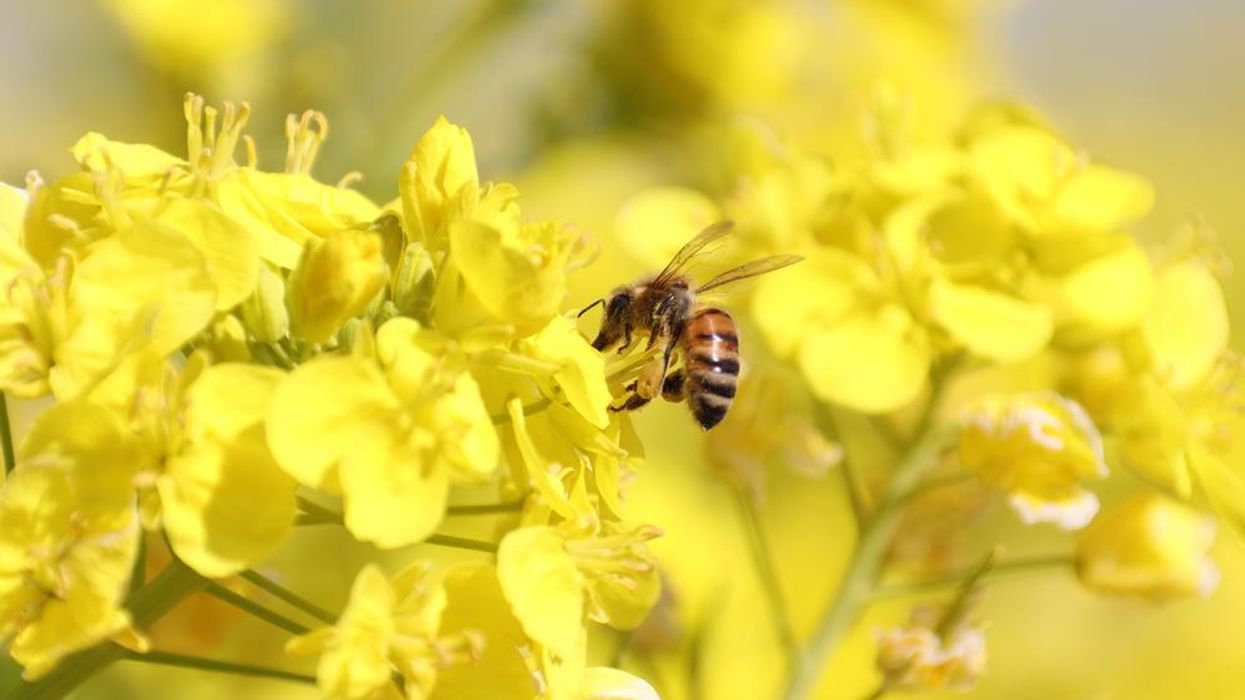Click here for updates on this story
TORONTO (CTV Network) — A recent study says pollination loss may be leading to hundreds of thousands of excess deaths worldwide as supplies of healthy food become less plentiful.
Research led by the Harvard T.H. Chan School of Public Health estimates that inadequate pollination has led to a three-to-five per cent loss in fruit, vegetable, and nut production.
This loss and the resulting health complications that would occur from associated health issues such as heart disease, stroke, diabetes, and some cancers has led to an estimated 427,000 excess deaths annually, they say.
"This study shows that doing too little to help pollinators does not just harm nature, but human health as well," lead author Matthew Smith, a research scientist in the school's Department of Environmental Health, said in a news release.
Samuel Myers, principal research scientist in the school's Department of Environmental Health and senior author of the study, added that "a critical missing piece in the biodiversity discussion has been a lack of direct linkages to human health."
"This research establishes that loss of pollinators is already impacting health on a scale with other global health risk factors, such as prostate cancer or substance use disorders."
The researchers published their study in the peer-reviewed journal Environmental Health Perspectives last month.
Researchers have previously pointed to the effects that high-intensity agriculture and climate change have had on insect species, including those needed to deliver pollen.
The authors of the Harvard study say insect pollinators increase the yields of three-fourths of crop varieties and are "critical to growing healthy foods like fruits, vegetables, and nuts."
They estimated the impact of pollinator loss, or "pollinator yield gaps," by using data from hundreds of experimental farms in Asia, Africa, Europe and Latin America.
The researchers found that lower-income countries felt the economic effects of lost food production due to less pollination more strongly, losing between 10 and 30 per cent of agricultural value.
However, middle- and higher-income countries, which normally have higher rates of non-communicable diseases, experienced a greater "health burden," the researchers say, with middle-income countries that have large populations such as China, India, Indonesia, and Russia suffering the most.
Timothy Sulser, senior scientist at the International Food Policy Research Institute in Washington, D.C., said in the news release that while the results may be surprising, "they reflect the complex dynamics of factors behind food systems and human populations around the world."
With files from CNN
The-CNN-Wire
™ & © 2023 Cable News Network, Inc., a Warner Bros. Discovery Company. All rights reserved.
- Samantha Bee - Advocate Channel ›
- 'Mean Girls' Meets 'Golden Girls' In New Timeless Comedy 'Queen Bees' ›
- Why You Should Stop Mowing Your Lawn | AdvocateChannel.com ›

















































